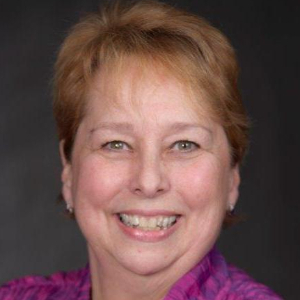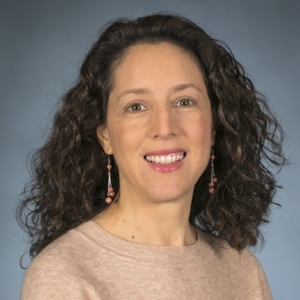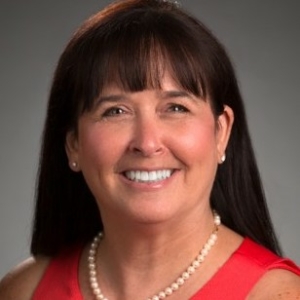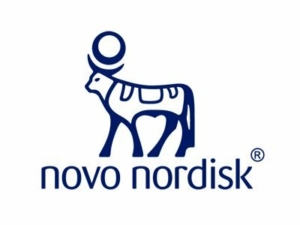Connect with Us
602 Park Point Drive, Suite 225, Golden, CO 80401 – +1 303.495.2073
© 2025 Medical Affairs Professional Society (MAPS). All Rights Reserved Worldwide.
Partnering for Today and Tomorrow – Episode 13 Training/Learning & Development
Link will be added when available

At the end of this series of podcasts, the participant should be able to:





Kathryn Gann 0:00
Welcome to the medical affairs professional society field medical focus area working groups podcast series entitled, field medical stakeholders Partnering for today and tomorrow. In this 13th podcast, we will be discussing training. I’m Katherine Gan. I’m a member of the field medical focus area working group, and I’ll be the moderator for this podcast. Currently, I’m an independent consultant in medical affairs. Having spent my 30 year career as an MSL, an MSL manager, and an MSL trainer. Our legal disclaimer is as follows. The views expressed in this recording are those of the individuals and do not necessarily reflect on the opinions of maps, or the companies with which they are affiliated. This presentation is for informational purposes only, and is not intended as legal or regulatory advice. We encourage you to engage in conversations about partnering with field medical stakeholders with other maps members via the community portal on the maps website. Simply log in with the email address and password associated with your maps account and click on the discussion tab. Then scroll down to field medical to post a question or review previous postings. The objectives for this series of podcasts are that at the end of this series, the participant will be able to one, discuss the functions and activities of key internal stakeholders and to identify potential areas for compliant collaboration by MSL with those key internal stakeholders. I’d like to thank today’s panelists for sharing their subject matter expertise with the maps membership. speaking today are Eleanor Goldberg, Director global field medical capabilities at Amgen and Eleonora will be our interviewer, and Michelle Davey, director, global scientific training global medical affairs at Merck. And Michelle will be our interviewee. Eleanor, I’m going to turn this interview over to you now. So could you kick us off, please by telling us a little bit about yourself and your current position?
Eleonora Goldberg 2:06
Yes, thank you. Hi, everyone. My name is Eleanor Goldberg, and I am the Director of Global fields medical capabilities. I have the privilege in this role to enhance the role and impact of the field medical organization. And with that, I’d like to hand it over to Michelle to introduce yourself as well.
Michell Davi 2:25
Sure, thanks, Eleanor. And thanks to maps for inviting me to speak with you today. So I’m a DNP by training. So it means I’m a nurse practitioner with my doctorate. I started my career in academic medicine working at an academic medical center for almost 20 years, both in clinical practice and doing clinical research as a sub investigator in the infectious disease and pediatric HIV and prevention of mother to child transmission areas. I was recruited into pharma in 2003 first for commercial role, and then I made my way over to medical affairs as an MSL, I joined my current company in 2016 for a field based medical Affairs Director MSL position. And in 2018, I transitioned to a US medical affairs headquarters role, which was the precursor for the role I have now as the global director for global scientific training.
Eleonora Goldberg 3:14
That’s great. Thank you so much for that introduction. Can you explain to us what global scientific training does?
Michell Davi 3:22
Sure. So global scientific training or GST is responsible for the medical and scientific education of the medical scientist or MSL globally, having a centralized function for scientific training allows for one medical voice and one source of scientific truth for the company. So based on our scientific strategy, I developed the annual global scientific training plan for my therapeutic area. collaborate with other global and regional team members to create the training and training resources, deliver the training and then assess the quality and effectiveness of the training and training can include anything from new scientific literature for journal clubs, therapeutic area foundational training to Congress training or to basic sciences scientific training on a new mechanism of action. If it is something that our MSL may be discussing during scientific exchange with scientific leaders, it falls under my responsibilities
Eleonora Goldberg 4:18
and how is it that the GST team is structured in your company?
Michell Davi 4:24
So GST is divided by therapeutic areas in my company with the director leading each of the different ta or therapeutic areas and the GSC group system sits within the field Medical Center of Excellence, which also was responsible for the core skills and capabilities training of our field team, as well as strategic and operational support. And the field Medical Center of Excellence is committed to promoting and supporting field medical excellence. The Field Medical Corp, such as in D Mac, or our global medical affairs capabilities organization, which also is the umbrella organization for global science. If ICANN Since development, which are materials that are used in the field by the MSL during scientific exchange, as well as global medical information, global medical operations and a bunch of other support functions, and xemacs. It’s within GE MSA or the global medical scientific affairs organization, which is the medical and scientific affairs group of Merck research lab. But CST is just one integral part of this large support network that we have for the field.
Eleonora Goldberg 5:26
I love it. You guys have so many acronyms just like we do. For sure, yeah, definitely. What is your role within this group?
Michell Davi 5:37
So as I mentioned earlier, I’m the Director for global scientific training, and specifically for the HIV therapeutic area. And I’m responsible for the planning, developing and delivering of all of the medical and scientific education for HIV field medical teams worldwide.
Eleonora Goldberg 5:55
And so who would you say are your main internal customers?
Michell Davi 6:01
So our main customers would be the global HIV field medical team. And at my company, that means any medical or scientific affairs individual that has any field facing responsibilities. So although it’s primarily MSL, as a medical scientist, it could also mean medical advisors, it could be medical directors, country, medical directors, regional directors, depending on where you are located in the world. Each country looks a little bit different. And then I also work very closely and collaboratively with our strategy team members, as well as our field medical leadership team. But the global field medical teams are my primary stakeholder or customer.
Eleonora Goldberg 6:38
That’s great. And there’s so much that can be done in training, can you share with us some of the innovative initiatives that you’re currently working on?
Michell Davi 6:47
For sure. So, you know, recognizing that adult learners need a variety of training modalities for effective learning, we’re always exploring new and creative ways to deliver instruction apart from the formal deductive method. And as we’re all working virtually now, this can be quite challenging, since we only really have one forum for communication. So over the past year, I’ll say at least at least for the past, for the past year, we’ve piloted using experiencial learning via virtual breakout rooms, using scenario based learning so allowing the field medical teams to practice articulating the data by as well as using external scientific content resources that they would be using during scientific exchange in the field. And then having a manager or strategy lead or appear provides feedback and that has proven to be a real effective training modality especially for that kinesthetic learner. And I’ve also capitalized on the scientific congresses now moving to virtual platforms, which requires presenters to record their oral presentations or even their poster presentations. And I’ve turned those into recordings of our own company’s data presentations into individual training podcasts with summaries of key scientific communication points, as well as the the contextualization or the strategic context, providing the why is this important? What does this mean for me, the MSL, what does this mean for the company or for patients, and the MSL can access and listen to the five to 10 minute podcast at their own pace when it’s convenient for them, which really helps to meet the needs and then of the auditory learner. We’ve also initiated the use of a micro learning platform via the MSL mobile devices or their iPad or their mobile phone to reinforce key concepts make the information more easily accessible, I think the last two modalities will probably have even better benefit when the field is back to having in person face to face interactions. And they can access the micro learning platform or the podcasts on the go. So we’ve also built off of some of our in person training successes by moving those successes to virtual programs. So by implementing a two to three day virtual training session for just a few hours each day instead of what we would normally have had face to face over a few days in a row where we can integrate scientific education, with training on those core skills and capabilities that are so important for our field based teams. And this is also proven to be very successful as well.
Eleonora Goldberg 9:18
That’s really great. Really nice to hear. Now for the MSL ‘s that are in the audience, they may be asking themselves, no, I want to be more involved or I really liked this area. How would you How would you say that they can interact with you and your department or similar departments?
Michell Davi 9:35
Yeah, that’s a great question. I think it’s a really a really, really important one. It’s so important for the field medical teams to interact with my department specifically for training as they’re just not my biggest stakeholder but they are the end user of information and the training. So as a former MSL I’m really committed and passionate ensuring that the field has a voice in global scientific training, and actually the workstream known as the voice of the field, which helps to determine and then promote appropriate and compliant forums for gathering input and feedback for all stages of the scientific training. So from annual planning, to development of training resources to execution of the training, as well as to figuring out how to best assess the quality and effectiveness of the training. And one of the new initiatives that I’ve implemented within my HIV therapeutic area is a global Field Medical Advisory Board, which is an incredible forum for gathering just that type of insight and feedback from all of the regions as you know, so you know, there are different needs and different regions and countries. And I need to make sure that I’m meeting all of my learners needs not just the larger countries or specific regions, depending on their market. So additionally, I think what’s really important too, is that many of our medical sciences have expertise in a variety of areas. So for example, in my therapeutic area, some of our ologists, who have done extensive research in HIV or drug development, or they could be physicians, nurse practitioners, or pharmacies that have clinical experience, and may even be still practicing with the city given therapeutic area. And the expertise that they can provide is really incredible. And I truly support they’re involved then in in helping to train their peers and assist with improving the scientific knowledge of their colleagues, by involving them in the developing and delivering the various trainings that are offered.
Eleonora Goldberg 11:25
That’s great. And I think many of our audience is I myself, and you mentioned at the beginning of your introduction, that you were an MSL as well. So can you tell us a little bit more about your career path? And how it led you to the current position and how and how the MSL role prepared you for this position?
Michell Davi 11:43
Yeah, so as I mentioned earlier, prior to coming to pharma, I was a nurse practitioner working in academic medicine. And I had the opportunity to teach both in the School of Medicine and the School of Nursing. So I had a higher education background. And I really believe that MSL are really educators, right, they’re scientific educators. So that was a real natural fit for me. And I worked in the field based role for quite some time, but I did have an interest in HQ position. And fortunately for me, my company supports remote work for many different roles. And an opportunity came up to become the US training and content director for for a different ta actually, than what I was currently working in. And I thought that that would be something very different, but also very familiar. And then I was still be educated in training my colleagues, and having MSL background was so important. So I knew a good effective or I know what good effective scientific exchange looks like in the field. And I understood field strategy and execution. So I really had a good idea and a good foundation of my stakeholder needs and what they would need to be successful in the field. So I accepted the opportunity. I loved it. And when my current company had a restructuring a few years back, I was asked to take on the global position for scientific training. And after a bit of time and expansion of the team, I went back to focusing specifically on HIV. And I think what the audience to take away is that no matter what the therapeutic area is, the MSL communication skills, the listening skills, the skills with handling challenging questions and difficult situation, presentation skills, and the expertise in relationship building are all the same across therapeutic areas. And this is so important in an HQ position as well. So you bring all that to your to HQ role. And having a field based background has definitely contributed to the success that I’ve had in my in my current role in my prior HQ role as well.
Kathryn Gann 13:36
That’s great. Well, thank you so much. This
Eleonora Goldberg 13:37
has been so informative. I really appreciate it. I hope everyone in the audience did as well. I think this concludes the podcast and I’ll hand it back over to Katherine.
Kathryn Gann 13:49
Thank you, Eleanor and Michelle, that was really interesting. And as a former MSL trainer, I have to admit I loved it when Michelle talked about a learning adult learning principles, something near and dear to my heart. So in line with our learning objectives, I think participants should now have a better understanding of the role and function of training and particularly the breadth of the what the training department does. And then also how MSL may compliantly interact with training and Michelle gave us some great examples of how she works with MSL. So this has been the 13th podcast in the series on the topic of field medical stakeholders Partnering for today and tomorrow. If you’re a maps member, thank you for your support of maps. If you’re not yet a maps member and would like access to additional resources in this area, please visit the maps website to explore joining and that website is medical affairs.org forward slash membership. This concludes the podcast
602 Park Point Drive, Suite 225, Golden, CO 80401 – +1 303.495.2073
© 2025 Medical Affairs Professional Society (MAPS). All Rights Reserved Worldwide.

 The Power of Mastermind Groups for Medical Affairs
The Power of Mastermind Groups for Medical Affairs